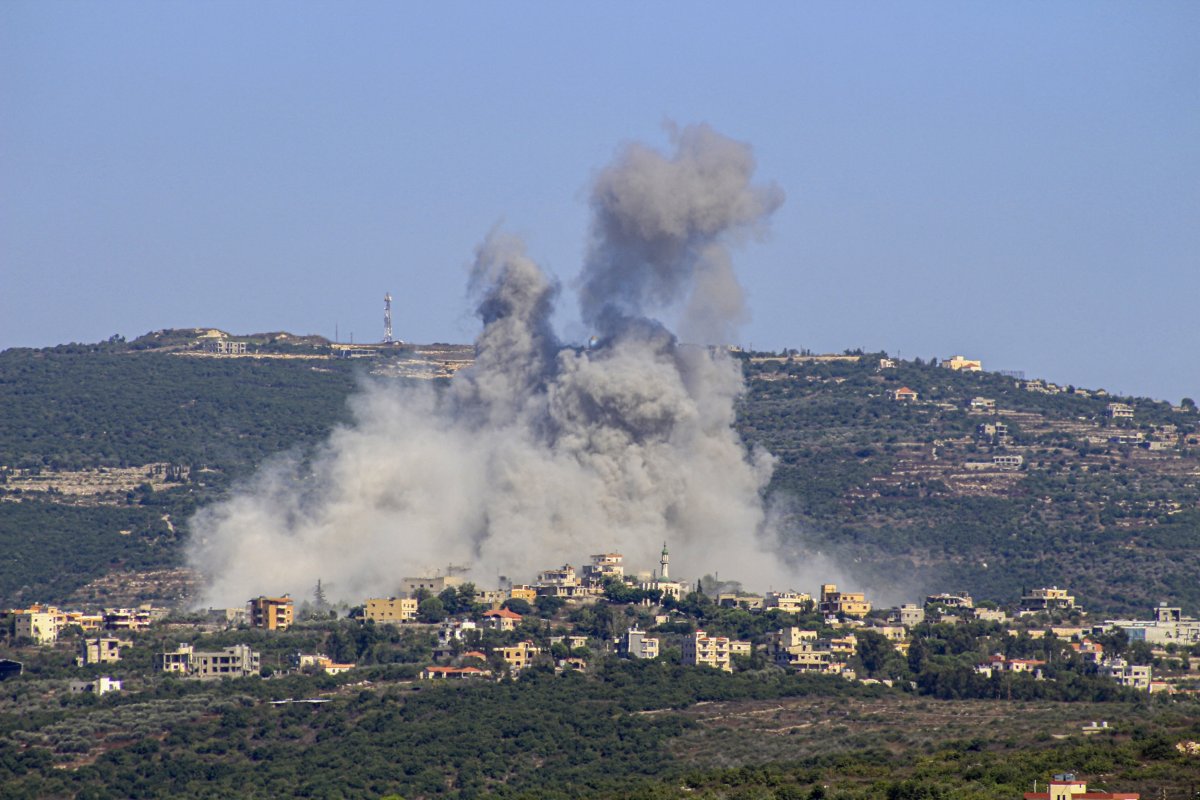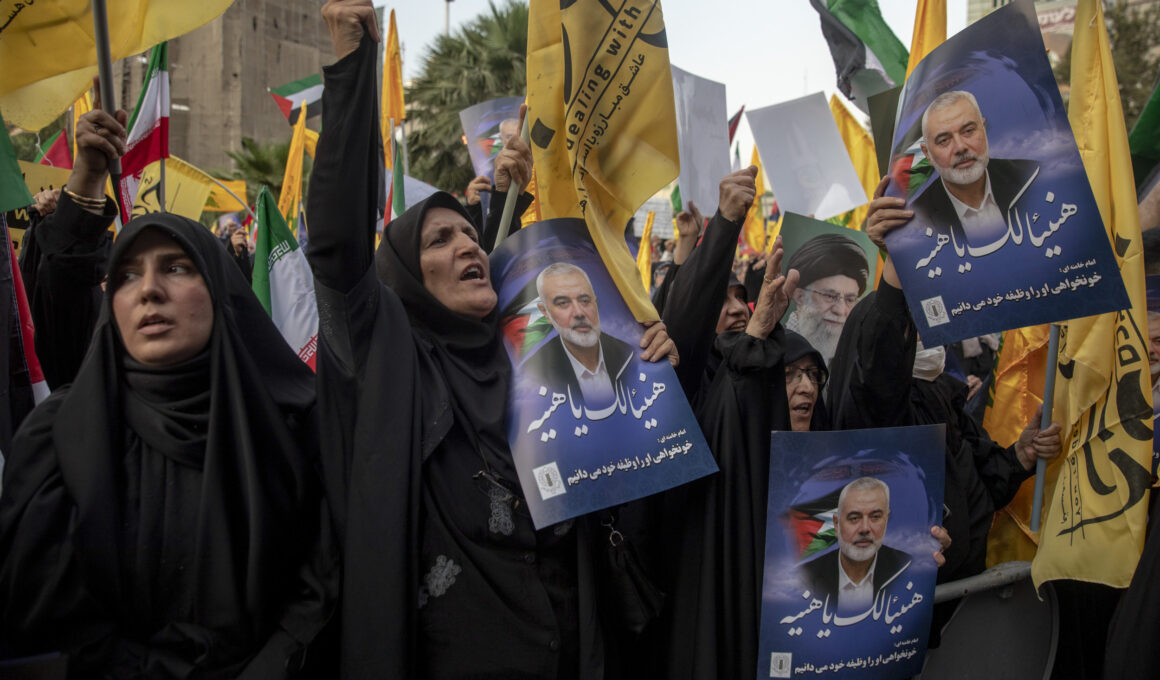With tensions continuing to escalate in the Middle East, the United States government has now warned its citizens not to travel to Lebanon.
The crisis in the region has been intensifying since the Oct. 7 Hamas attack on Israel, in which 1,200 people were killed and around 250 taken hostage. Israel’s war on Gaza has to date killed over 39,000 Palestinians, according to the Palestinian Ministry of Health.
This week, Hamas’ top political leader was killed in an attack in Iran, according to the Palestinian movement and Iran‘s Islamic Revolutionary Guard Corps (IRGC). This attack followed the killing of a senior Hezbollah commander, Fouad Shukr, in the Lebanese capital of Beirut.
The U.S. Department of State has changed the travel advisory for Lebanon, warning citizens not to travel there. The advisory reads: “Do Not Travel to Lebanon due to rising tensions between Hezbollah and Israel. If you are in Lebanon, be prepared to shelter in place should the situation deteriorate. The U.S. Embassy strongly encourages U.S. citizens who are already in Southern Lebanon, near the borders with Syria, and/or in refugee settlements to depart.”
Newsweek has reached out to the U.S. Department of State via a form on their website for comment.
The State Department’s travel advisory categorizes the risks into four levels. Level 1 is exercise normal precautions, meaning the place is safe to travel to. Level 2 is exercise increased caution, indicating you can travel to that country, but you need to be cautious. Level 3 is to reconsider travel, which is used for countries that are at higher risk. The highest is Level 4, which is a do not travel warning.
Safe to Travel: Exercise Normal Precautions
Cyprus, Kuwait, Oman, Qatar
These countries have been classified under Level 1 by the U.S. Department of State, indicating that travelers should exercise normal precautions. These destinations are considered to have a relatively low level of risk, making them ideal for travelers seeking a secure environment in the Middle East.
- Cyprus: Known for its rich history and beautiful beaches, Cyprus is a safe and welcoming destination.
- Kuwait: Despite being in a turbulent region, Kuwait maintains a stable and secure environment for travelers.
- Oman: Oman offers a blend of natural beauty and cultural heritage and provides a safe travel experience.
- Qatar: Qatar has modern cities and traditional culture and is a safe destination for travel.
Proceed with Caution: Exercise Increased Caution
Bahrain, Jordan, Turkey, United Arab Emirates
Countries classified under Level 2 require travelers to exercise increased caution due to potential risks such as terrorism or political instability. While generally safe, it is essential to stay informed about local developments and take necessary precautions.
- Bahrain: Known for its vibrant culture and history, Bahrain is generally safe, but travelers should be wary of potential unrest.
- Jordan: Home to the ancient city of Petra, Jordan is relatively safe, but requires vigilance due to regional tensions.
- Turkey: Offering a rich tapestry of history and modernity, Turkey is generally safe but it has areas where travelers need to be more cautious.
- United Arab Emirates: A popular destination known for its luxury and innovation, the UAE is safe, but travelers should be aware of potential threats.
Higher Risk: Reconsider Travel
Egypt, Israel, Saudi Arabia
Countries under Level 3 advisories indicate higher risks, and travelers are advised to reconsider their plans. These destinations may have significant security concerns, including terrorism and civil unrest.
- Egypt: Known for its ancient monuments and rich history, Egypt faces challenges with terrorism, requiring travelers to be cautious.
- Israel: While Israel has many historic and religious sites, ongoing conflicts and terrorism make it a higher-risk destination.
- Saudi Arabia: Despite its economic advancements, Saudi Arabia faces threats from missile and drone attacks, making it less secure for travel.

Highest Risk: Do Not Travel
Iran, Iraq, Lebanon, Palestine (West Bank and Gaza), Syria, Yemen
Countries classified under Level 4 are deemed extremely dangerous, and the U.S. Department of State advises against all travel to these areas due to severe risks such as terrorism, kidnapping and armed conflict.
- Iran: High risk due to the threat of arbitrary detention and hostility towards U.S. citizens.
- Iraq: Ongoing conflict and terrorism make Iraq extremely dangerous for travelers.
- Lebanon: Facing significant instability and the risk of conflict spillover, Lebanon is currently not safe for travel.
- Palestine (West Bank and Gaza): High risk due to the ongoing war in Gaza.
- Syria: Devastated by civil war, Syria remains highly dangerous for any travel.
- Yemen: Ongoing conflict and a humanitarian crisis make Yemen one of the most dangerous places in the world for travelers.
What’s Next?
The tensions in the Middle East are continually escalating.
Iranian officials have vowed to take revenge against Israel over the killing of Hamas’ political chief.
The U.S. Secretary of Defense issued a statement on a trip to Manila where he expressed hope for a diplomatic solution regarding the conflict between Israel and Lebanon. He stated: “I don’t think war is inevitable.”
Do you have a story we should be covering? Do you have any questions about travel to the Middle East? Contact LiveNews@newsweek.com
Uncommon Knowledge
Newsweek is committed to challenging conventional wisdom and finding connections in the search for common ground.
Newsweek is committed to challenging conventional wisdom and finding connections in the search for common ground.








